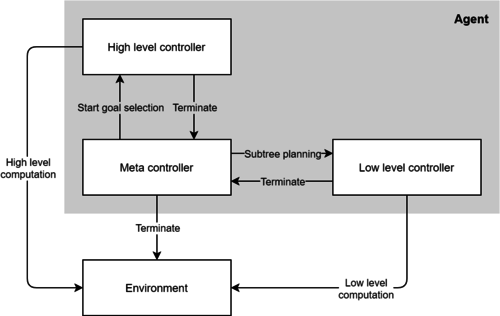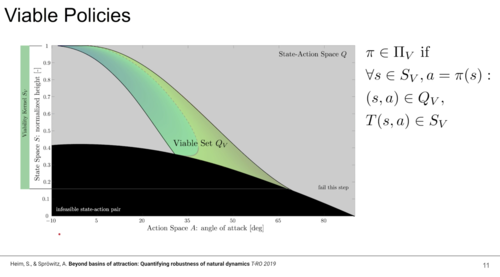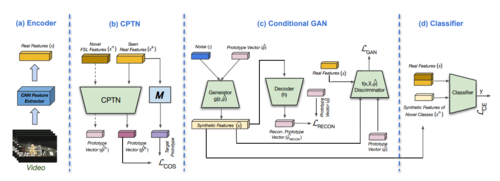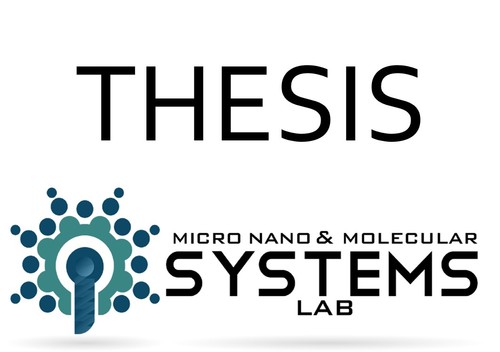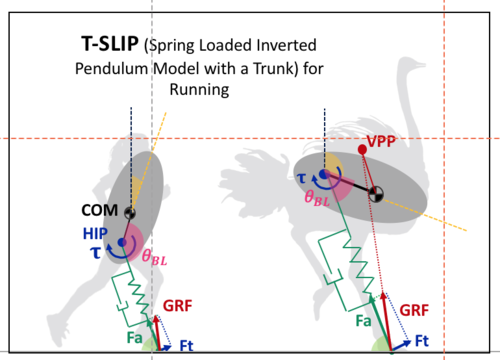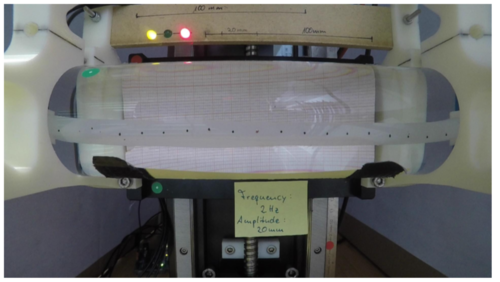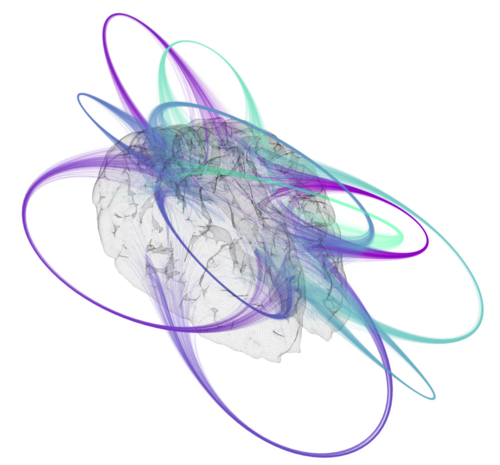2023
ei
Jenny, D.
Navigating the Ocean of Biases: Political Bias Attribution in Language Models via Causal Structures
ETH Zurich, Switzerland, November 2023, external supervision (thesis)
2022
ei
Schölkopf, B.
Causality, causal digital twins, and their applications
Machine Learning for Science: Bridging Data-Driven and Mechanistic Modelling (Dagstuhl Seminar 22382), (Editors: Berens, Philipp and Cranmer, Kyle and Lawrence, Neil D. and von Luxburg, Ulrike and Montgomery, Jessica), September 2022 (talk)
2021
ev
Strecke, M., Stückler, J.
Physically Plausible Tracking & Reconstruction of Dynamic Objects
KIT Science Week Scientific Conference & DGR-Days 2021, October 2021 (talk)
re
Heindrich, L., Consul, S., Stojcheski, J., Lieder, F.
Improving Human Decision-Making by Discovering Efficient Strategies for Hierarchical Planning
Tübingen, Germany, The first edition of Life Improvement Science Conference, June 2021 (talk) Accepted
2020
mms
Nacke, R.
Voltage dependent interfacial magnetism in multilayer systems
Universität Stuttgart, Stuttgart, December 2020 (thesis)
dlg
Heim, S., Badri-Spröwitz, A.
Beyond Basins of Attraction: Quantifying Robustness of Natural Dynamics
May 2020 (talk)
icm
Dertli, Denis
Nichtgleichgewichtsdynamik einer abgekühlten kritischen Flüssigkeit mit Oberflächenfeldern unterschiedlichen Vorzeichens
Universität Stuttgart, Stuttgart, January 2020 (thesis)
2019
ei
Safavi, S., Logothetis, N., Besserve, M.
Multivariate coupling estimation between continuous signals and point processes
Neural Information Processing Systems 2019 - Workshop on Learning with Temporal Point Processes, December 2019 (talk)
ps
Dwivedi, S. K., Gupta, V., Mitra, R., Ahmed, S., Jain, A.
ProtoGAN: Towards Few Shot Learning for Action Recognition
Proc. International Conference on Computer Vision (ICCV) Workshops, October 2019 (manual)
ei
Lutz, P.
Automatic Segmentation and Labelling for Robot Table Tennis Time Series
Technical University Darmstadt, Germany, August 2019 (thesis)
icm
Pranjić, Daniel
Fluctuating interface with a pinning potential
Universität Stuttgart, Stuttgart, 2019 (thesis)
icm
Beyer, David Bernhard
Controlling pattern formation in the confined Schnakenberg model
Universität Stuttgart, Stuttgart, 2019 (thesis)
pf
Itzigehl, Selina
HPLC separation of ligand-exchanged gold clusters with atomic precision
Univ. of Stuttgart, 2019 (thesis)
2018
dlg
Drama, Ö.
Impact of Trunk Orientation for Dynamic Bipedal Locomotion
Dynamic Walking Conference, May 2018 (talk)
dlg
Richter, J.
Untersuchung und Charakterisierung von Teilelementen der Modifikation im Lumbosacralbereich von Vögeln
Hochschule Harz, 2018 (thesis)
icm
Maihöfer, Michael
Pattern forming systems under confinement
Universität Stuttgart, Stuttgart, 2018 (thesis)
icm
Bebon, Rick
Electrostatic interaction between colloids with constant surface potentials at fluid interfaces
Universität Stuttgart, Stuttgart, 2018 (thesis)
icm
Wilke, Moritz
Non-equilibrium dynamics of a binary solvent around heated colloidal particles
Universität Stuttgart, Stuttgart, 2018 (thesis)
icm
Meiler, Tim
Monte Carlo study of colloidal structure formation at fluid interfaces
Universität Stuttgart, Stuttgart, 2018 (thesis)
pf
Hornberger, Lea-Sophie
DNA-linked gold nanoclusters
Univ. of Stuttgart, 2018 (thesis)
icm
Sattler, Alexander
Surface structure of liquid crystals
Universität Stuttgart, Stuttgart, 2018 (thesis)
pf
Vogt, Pascal
HPLC-Trennung von Gold-clustern
Univ. of Stuttgart, 2018 (thesis)
2017
icm
Hölzl, Christian
Non-equilibrium forces after temperature quenches in ideal fluids with conserved density
Universität Stuttgart, Stuttgart, 2017 (thesis)
pf
Troll, Jonas
Enzyme activity and transport in biological media
Univ. of Stuttgart, 2017 (thesis)
pf
Segreto, Nico
Propulsion of magnetic colloids at low Reynolds number
Univ. of Stuttgart, 2017 (thesis)
zwe-sw
Bramlage, L.
Design of a visualization scheme for functional connectivity data of Human Brain
Hochschule Osnabrück - University of Applied Sciences, 2017 (thesis)
icm
Schmetzer, Timo
Electrostatic interaction between non-identical charged particles at an electrolyte interface
Universität Stuttgart, Stuttgart, 2017 (thesis)
2016
ei
Castaneda, S., Katiyar, P., Russo, F., Calaminus, C., Disselhorst, J. A., Ziemann, U., Kohlhofer, U., Quintanilla-Martinez, L., Poli, S., Pichler, B. J.
Analysis of multiparametric MRI using a semi-supervised random forest framework allows the detection of therapy response in ischemic stroke
World Molecular Imaging Conference, 2016 (talk)
ei
Katiyar, P., Divine, M. R., Kohlhofer, U., Quintanilla-Martinez, L., Siegemund, M., Pfizenmaier, K., Kontermann, R., Pichler, B. J., Disselhorst, J. A.
Multi-view learning on multiparametric PET/MRI quantifies intratumoral heterogeneity and determines therapy efficacy
World Molecular Imaging Conference, 2016 (talk)
2015
ei
Besserve, M.
Causal Inference for Empirical Time Series Based on the Postulate of Independence of Cause and Mechanism
53rd Annual Allerton Conference on Communication, Control, and Computing, September 2015 (talk)
ei
Besserve, M.
Independence of cause and mechanism in brain networks
DALI workshop on Networks: Processes and Causality, April 2015 (talk)
am
ics
Doerr, A.
Policy Search for Imitation Learning
University of Stuttgart, January 2015 (thesis)
ei
Chaves, R., Majenz, C., Luft, L., Maciel, T., Janzing, D., Schölkopf, B., Gross, D.
Information-Theoretic Implications of Classical and Quantum Causal Structures
18th Conference on Quantum Information Processing (QIP), 2015 (talk)
ei
Castaneda, S. G., Katiyar, P., Russo, F., Disselhorst, J. A., Calaminus, C., Poli, S., Maurer, A., Ziemann, U., Pichler, B. J.
Assessment of brain tissue damage in the Sub-Acute Stroke Region by Multiparametric Imaging using [89-Zr]-Desferal-EPO-PET/MRI
World Molecular Imaging Conference, 2015 (talk)
ei
Divine, M. R., Harant, M., Katiyar, P., Disselhorst, J. A., Bukala, D., Aidone, S., Siegemund, M., Pfizenmaier, K., Kontermann, R., Pichler, B. J.
Early time point in vivo PET/MR is a promising biomarker for determining efficacy of a novel Db(\alphaEGFR)-scTRAIL fusion protein therapy in a colon cancer model
World Molecular Imaging Conference, 2015 (talk)
ei
Foreman-Mackey, D., Hogg, D. W., Schölkopf, B.
The search for single exoplanet transits in the Kepler light curves
IAU General Assembly, 22, pages: 2258352, 2015 (talk)
2014
ei
Besserve, M., Schölkopf, B., Logothetis, N. K.
Unsupervised identification of neural events in local field potentials
44th Annual Meeting of the Society for Neuroscience (Neuroscience), 2014 (talk)
ei
Besserve, M.
Quantifying statistical dependency
Research Network on Learning Systems Summer School, 2014 (talk)
ei
Schmeißer, N.
Development of advanced methods for improving astronomical images
Eberhard Karls Universität Tübingen, Germany, Eberhard Karls Universität Tübingen, Germany, 2014 (diplomathesis)
ei
Divine, M. R., Disselhorst, J. A., Katiyar, P., Pichler, B. J.
Using a population based Gaussian Mixture Model on fused [18]F-FDG PET and DW-MRI images accurately segments the tumor microenvironment into clinically relevant compartments capable of guiding therapy
European Molecular Imaging Meeting, 2014 (talk)
ei
Janzing, D.
Causal Inference from Passive Observations
24th Summer School University of Jyväskylā, Finland, August, 2014 (talk)
2013
ei
pn
Schober, M.
Camera-specific Image Denoising
Eberhard Karls Universität Tübingen, Germany, October 2013 (diplomathesis)
ei
Logothetis, N., Eschenko, O., Murayama, Y., Augath, M., Steudel, T., Evrard, H., Besserve, M., Oeltermann, A.
Studying large-scale brain networks: electrical stimulation and neural-event-triggered fMRI
Twenty-Second Annual Computational Neuroscience Meeting (CNS*2013), July 2013, journal = {BMC Neuroscience},
year = {2013},
month = {7},
volume = {14},
number = {Supplement 1},
pages = {A1}, (talk)
ei
Mantlik, F., Bezrukov, I., Hofmann, M., Schölkopf, B., Pichler, B.
MR-Based Attenuation Correction for Combined Brain PET/MR: Robustness of Atlas- and Pattern Recognition Method to Atlas Registration Failures
IEEE Nuclear Science Symposium and Medical Imaging Conference (IEEE MIC), 2013 (talk)
ei
Muandet, K.
Domain Generalization via Invariant Feature Representation
30th International Conference on Machine Learning (ICML2013), 2013 (talk)
2012
ei
Muandet, K.
Support Vector Machines, Support Measure Machines, and Quasar Target Selection
Center for Cosmology and Particle Physics (CCPP), New York University, December 2012 (talk)
ei
Muandet, K.
Hilbert Space Embedding for Dirichlet Process Mixtures
NIPS Workshop on Confluence between Kernel Methods and Graphical Models, December 2012 (talk)
ei
Wehrl, H., Lankes, K., Hossain, M., Bezrukov, I., Liu, C., Martirosian, P., Schick, F., Pichler, B.
Simultaneous small animal PET/MR in activated and resting state reveals multiple brain networks
20th Annual Meeting and Exhibition of the International Society for Magnetic Resonance in Medicine (ISMRM), May 2012 (talk)


